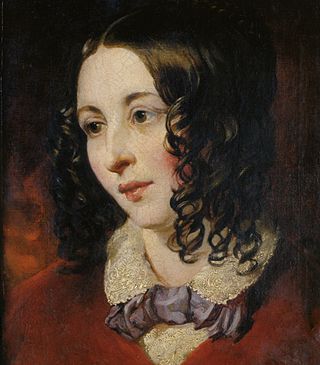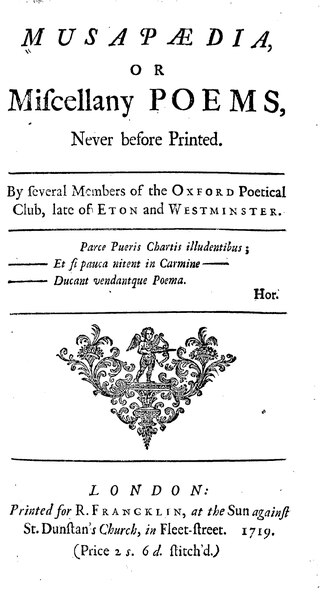Related Research Articles

A threshing machine or a thresher is a piece of farm equipment that separates grain seed from the stalks and husks. It does so by beating the plant to make the seeds fall out. Before such machines were developed, threshing was done by hand with flails: such hand threshing was very laborious and time-consuming, taking about one-quarter of agricultural labour by the 18th century. Mechanization of this process removed a substantial amount of drudgery from farm labour. The first threshing machine was invented circa 1786 by the Scottish engineer Andrew Meikle, and the subsequent adoption of such machines was one of the earlier examples of the mechanization of agriculture. During the 19th century, threshers and mechanical reapers and reaper-binders gradually became widespread and made grain production much less laborious.

Jethro Tull was an English agriculturist from Berkshire who helped to bring about the British Agricultural Revolution of the 18th century. He perfected a horse-drawn seed drill in 1701 that economically sowed the seeds in neat rows, and later developed a horse-drawn hoe. Tull's methods were adopted by many landowners and helped to provide the basis for modern agriculture.
This article contains information about the literary events and publications of 1730.

"Captain Swing" was a name that was appended to several threatening letters during the rural Swing Riots of 1830, when labourers rioted over the introduction of new threshing machines and the loss of their livelihoods. The name was made-up and it came to symbolise the anger of the poor labourers in rural England who wanted a return to the pre-machine days when human labour was used.

Eliza Cook was an English author and poet associated with the Chartist movement. She was a proponent of political freedom for women, and believed in the ideology of self-improvement through education, something she called "levelling up." This made her hugely popular with the working class public in both England and America.
Pindarics was a term for a class of loose and irregular odes greatly in fashion in England during the close of the 17th and the beginning of the 18th century. Abraham Cowley, who published fifteen Pindarique Odes in 1656, was the poet most identified with the form though many others had composed irregular verses before him. The term is derived from the name of a Greek archaic poet, Pindar, but is based on a misconception since Pindar's odes were in fact very formal, obeying a triadic structure, in which the form of the first stanza (strophe) was repeated in the second stanza (antistrophe), followed by a third stanza (epode) that introduced variations but whose form was repeated by other epodes in subsequent triads. Cowley's Resurrection, which was considered in the 17th century to be a model of the 'pindaric' style, is a formless poem of sixty-four lines, arbitrarily divided, not into triads, but into four stanzas of unequal volume and structure; the lines which form these stanzas are of lengths varying from three feet to seven feet, with rhymes repeated in no order. It was the looseness of these 'pindarics' that appealed to many poets at the close of the 17th century, including John Dryden, Aphra Behn, and Alexander Pope, and many lesser poets, such as John Oldham, Thomas Otway, Thomas Sprat, John Hughes and Thomas Flatman.

Mary Leapor (1722–1746) was an English poet, born in Marston St. Lawrence, Northamptonshire, the only child of Anne Sharman and Philip Leapor (1693–1771), a gardener. She, out of the many labouring-class writers of the period, was noticeably well received.

Capital. A Critique of Political Economy. Volume I: The Process of Production of Capital is the first of three treatises that make up Das Kapital, a critique of political economy by the German philosopher and economist Karl Marx. First published on 14 September 1867, Volume I was the product of a decade of research and redrafting and is the only part of Das Kapital to be completed during Marx's life. It focuses on the aspect of capitalism that Marx refers to as the capitalist mode of production or how capitalism organises society to produce goods and services.
Nationality words link to articles with information on the nation's poetry or literature.

Constantia Grierson, was an editor, poet, and classical scholar from County Kilkenny, Ireland. She is notable for her achievements as a classicist, which were all the more remarkable given her labouring-class background.
Proletarian literature refers here to the literature created by left-wing writers mainly for the class-conscious proletariat. Though the Encyclopædia Britannica states that because it "is essentially an intended device of revolution", it is therefore often published by the Communist Party or left-wing sympathizers, the proletarian novel has also been categorized without any emphasis on revolution, as a novel "about the working classes and working-class life; perhaps with the intention of making propaganda". This different emphasis may reflect a difference between Russian, American and other traditions of working-class writing, with that of Britain. The British tradition was not especially inspired by the Communist Party, but had its roots in the Chartist movement, and socialism, amongst others. Furthermore, writing about the British working-class writers, H Gustav Klaus, in The Socialist Novel: Towards the Recovery of a Tradition (1982) suggested that "the once current [term] 'proletarian' is, internationally, on the retreat, while the competing concepts of 'working-class' and 'socialist' continue to command about equal adherence".
Stephen Duck was an English poet whose career reflected both Augustan interest in "naturals" and its resistance to classlessness.

Mary Collier (1688–1762) was an English poet, perhaps best known for The Woman's Labour, a poem described by one commentator as a "plebeian female georgic that is also a protofeminist polemic."
Elizabeth Hands was an English poet.
Political poetry brings together politics and poetry. According to "The Politics of Poetry" by David Orr, poetry and politics connect through expression and feeling, although both of them are matters of persuasion. Political poetry connects to people's feelings, and politics connects to current events. Poetry can also make political references and have real effects on the perception of politics.
Harold Heslop was an English writer, left-wing political activist, and coalminer, from near Bishop Auckland, County Durham. Heslop's first novel Goaf was published in 1926, but it was in a Russian translation as Pod vlastu uglya and did not appear in England until 1934. In 1929, he also published his first novel in England, The Gate of a Strange Field, about the 1926 United Kingdom general strike. His last novel, The Earth Beneath, was published in 1946.

A miscellany is a collection of various pieces of writing by different authors. Meaning a mixture, medley, or assortment, a miscellany can include pieces on many subjects and in a variety of different forms. In contrast to anthologies, whose aim is to give a selective and canonical view of literature, miscellanies were produced for the entertainment of a contemporary audience and so instead emphasise collectiveness and popularity. Laura Mandell and Rita Raley state:
This last distinction is quite often visible in the basic categorical differences between anthologies on the one hand, and all other types of collections on the other, for it is in the one that we read poems of excellence, the "best of English poetry," and it is in the other that we read poems of interest. Out of the differences between a principle of selection and a principle of collection, then, comes a difference in aesthetic value, which is precisely what is at issue in the debates over the "proper" material for inclusion into the canon.

In Scotland, the Industrial Revolution was the transition to new manufacturing processes and economic expansion between the mid-eighteenth century and the late nineteenth century. By the start of the eighteenth century, a political union between Scotland and England became politically and economically attractive, promising to open up the much larger markets of England, as well as those of the growing British Empire, resulting in the Treaty of Union of 1707. There was a conscious attempt among the gentry and nobility to improve agriculture in Scotland. New crops were introduced and enclosures began to displace the run rig system and free pasture. The economic benefits of union were very slow to appear, some progress was visible, such as the sales of linen and cattle to England, the cash flows from military service, and the tobacco trade that was dominated by Glasgow after 1740. Merchants who profited from the American trade began investing in leather, textiles, iron, coal, sugar, rope, sailcloth, glass-works, breweries, and soap-works, setting the foundations for the city's emergence as a leading industrial center after 1815.

Ellen Taylor was an Irish author notable for being the only known example of a rural labouring-class Irish poet writing in English in this period.
References
- ↑ Klaus, H. Gustav (1985). The Literature of Labour: Two Hundred Years of Working-Class Writing. Brighton: Harvester Wheatsheaf. p. 12. ISBN 9780710806314.
- ↑ Van-Hagen, Steve (Fall 2007). "Literary Technique, the Aestheticization of Laboring Experience, and Generic Experimentation in Stephen Duck's The Thresher's Labour". Criticism. 47 (4): 421–450. Retrieved 9 December 2014.
- ↑ McGonigal, Peter (1982). "Stephen Duck and the Text of The Thresher's Labour". The Library. 6 (IV): 288–296. Retrieved 12 May 2016.
- 1 2 Duck, Stephen (1738). Poems on Several Occasions. London: John Osborn; Samuel Birt; and James Hodges. pp. 7-20.
- ↑ Goodridge, John (1996). Rural Life in Eighteenth-Century English Poetry. Cambridge University Press. p. 12. ISBN 9780511584909.
- ↑ Kuiper, Edith. "Mary Collier". Political and Feminist Economics. Retrieved 9 December 2014.